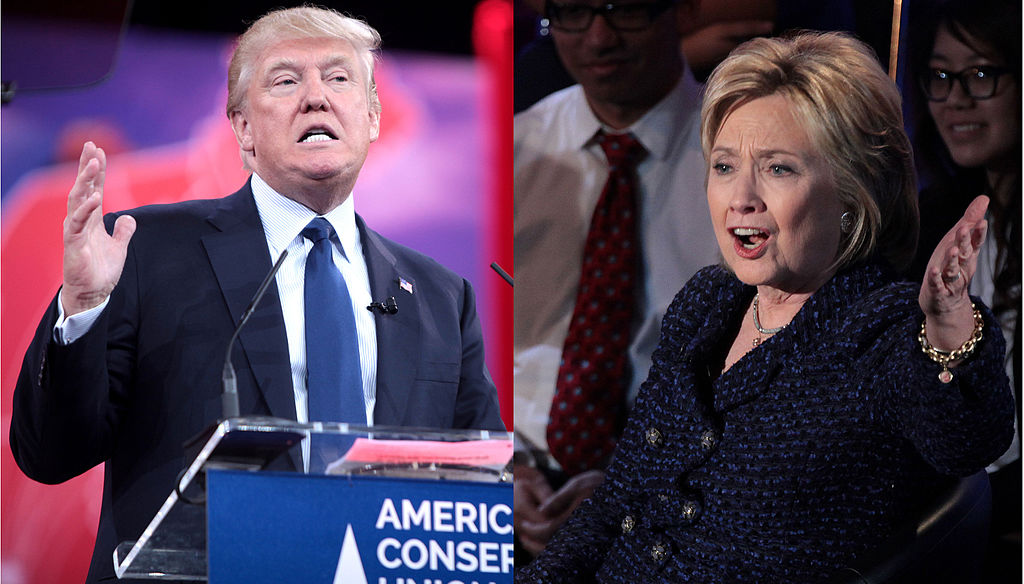
By Amber McGee, Staff Writer
Immigration is an issue of great controversy. There are many variables to consider when making a plan for how to handle the influx of immigrants coming to the United States both legally and illegally. It is important to consider the economic as well as the humanitarian aspects of immigration. Presidential candidates Donald Trump and Hillary Clinton seem to have taken polarized stances on this issue.
Trump focuses on the economic aspect. In order to come up with a good economic plan regarding immigration, however, one has to first have an understanding of how immigration affects the economy. Clinton seems to focus more heavily on the humanitarian aspect, but she has been criticized for making policy decisions on humanitarianism alone.
The key issues we hear most about in the news and which both candidates have addressed are: (1) How should we secure our southern border, and (2) how should we handle illegal immigrants who already reside in our country?
Many Americans are now familiar with Trump’s immigration policy. For clarity, his “10-Point Plan to Put America First” is as follows:
- Begin working on an impenetrable physical wall on the southern border, on day one. Mexico will pay for the wall.
- End catch-and-release. …
- Move criminal aliens out day one, in joint operations with local, state, and federal law enforcement. …
- End sanctuary cities.
- Immediately terminate President Obama’s two illegal executive amnesties. …
- Suspend the issuance of visas to any place where adequate screening cannot occur[.] …
- Ensure that other countries take their people back when we order them deported.
- Ensure that a biometric entry-exit visa tracking system is fully implemented at all land, air, and sea ports.
- Turn off the jobs and benefits magnet. …
- Reform legal immigration to serve the best interests of America and its workers, keeping immigration levels within historic norms.[1]
Many people like Trump’s plan because it is somewhat comprehensive and, seemingly, it “puts America first.”[2] In dissecting the plan overall and in part, however, it has many flaws which, if implemented, would put America in a bad spot economically. Immigration as a whole has been proven to help the U.S. federal economy.[3] Mass deportation would be costly and ineffective, not to mention the harsh impact this proposed solution would have on families.[4]
It is important to consider that most illegal immigrants still pay taxes. The majority pay sales taxes in states with sales taxes and property taxes through properties that they own or rent.[5] Furthermore, “[t]he Social Security Administration estimates that 75 percent of unauthorized immigrants are actually on formal payrolls, either using fraudulent Social Security numbers or Social Security numbers of the deceased.[6] Unauthorized immigrants pay into Social Security via automatic payroll deductions, but they can never claim Social Security benefits.[7] In 2005, it was estimated that unauthorized immigrants paid about $7 billion per year in Social Security taxes that they will never be able to reclaim.”[8]
Overall, Clinton’s plan is less comprehensive, according to the average American voter. She pledges to fight for immigration reform and for reuniting families — stating that she will fight to uphold what President Barack Obama has accomplished.[9] She also wishes to make legal immigration for those eligible more streamlined. She, however, does not propose any ideas as to how that may be accomplished.[10]
Taking all aspects of immigration into consideration, it is difficult to come up with a plan that effectively addresses everything. It has been proposed by experts that an independent federal agency should be established to evaluate the U.S. labor market and make annual recommendations to Congress on the levels of permanent and temporary immigrant labor.[11]
This would better allow the U.S. economy to respond to the needs of employers during expansions, while avoiding the addition of too many workers to the labor market when the unemployment rate is high.[12] This would address the economic aspect of immigration and still leave room for legislation to be passed that also addresses humanitarian concerns.
Sources
[1] www.donaldjtrump.com/policies/immigration
[2] Id.
[3] Scott Clemons, The Unsung Economics of Immigration, Forbes.com, Sept. 4, 2014.
[4] Id.
[5] Id.
[6] http://www.epi.org/publication/immigration-facts/
[7] Id.
[8] Id.
[9] www.hillaryclinton.com/issues/immigration-reform/
[10] Id.
[11] Stuart Anderson, Three Reasons Why Immigrants are the Key to Economic Growth, Forbes.com, Oct. 2, 2016.
[12] Id.